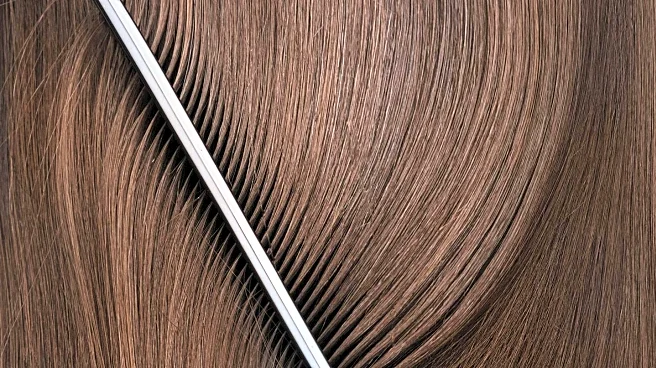What's Happening?
An oily scalp can be a symptom of androgenetic alopecia, a common form of hair loss affecting millions in the U.S. Trichologist Sophia Emmanuel explains that excess sebum production can lead to clogged hair follicles and potential hair loss. Factors such as hormone fluctuations, genetics, diet, and stress can influence sebum levels. Emmanuel offers tips to manage oily hair, including washing more frequently, avoiding oils on the scalp, and using clarifying shampoos. She also suggests dietary changes and pre-shampoo treatments to reduce oiliness.
Why It's Important?
Understanding the link between oily scalp and hair loss is crucial for individuals concerned about their hair health. By identifying potential signs of androgenetic alopecia early, people can seek professional evaluation and treatment to prevent or slow hair loss. The tips provided by Emmanuel offer practical solutions for managing oily hair, promoting healthier scalp conditions. This information is valuable for those looking to maintain their hair health and prevent future issues.
Beyond the Headlines
The discussion of hair health highlights the broader importance of self-care and awareness of bodily changes. As individuals become more informed about potential signs of hair loss, they can take proactive steps to address underlying causes and improve overall well-being. This focus on hair health also reflects societal trends towards greater attention to personal grooming and appearance.









